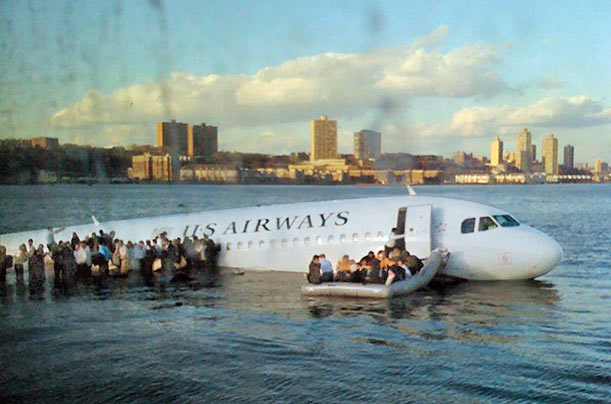
A plane crash is not a natural time for optimism. But maybe it should be. The ditching of US Airways Flight 1549 in the Hudson River, coming in the dark of winter in a country short on confidence, was more revealing than it was astonishing.
Let's start with the statistics: First, most plane crashes are more like this one than we think. More people survive than die. Aircraft in distress don't drop, screaming, out of the sky into the fires of hell. They end up on the ground or in water, and people must get out quickly. Those who fare best are usually those who are prepared: the pilot who has flown for four decades and trained for calamity; the man in the exit row who has read the safety card.
The rest of us, case studies say, become obedient and quiet. An instant camaraderie unifies strangers on a sinking ship or a bombed-out subway car. The overriding sound track is silence. After the Hudson crash, TV reporters badgered passengers, incredulous that there had not been shoving and hysteria. But if we asked all the survivors of all history's mishaps, we would hear the same patient reply: No, people were pretty calm, actually. Which is not to say they weren't terrified.
Imagine if this had been a scene from 24, if terrorists — not geese — had taken out the engines. The heroes would have been the rescuers — Special Forces soldiers dangling from helicopters, Jack Bauer speedboating down the Hudson — and the passengers would have been shrieking, panicking, useless.
The truth is more instructive, especially now. It turns out that even with grave danger all around, leaders can make gutsy decisions that end up being right. Regular people are quite capable of wresting open exit doors. Ferry captains, without waiting for orders, will make a beeline for trouble. We have the power to save ourselves. And we are more resilient than we think.
Ripley is the author of The Unthinkable: Who Survives When Disaster Strikes — and Why